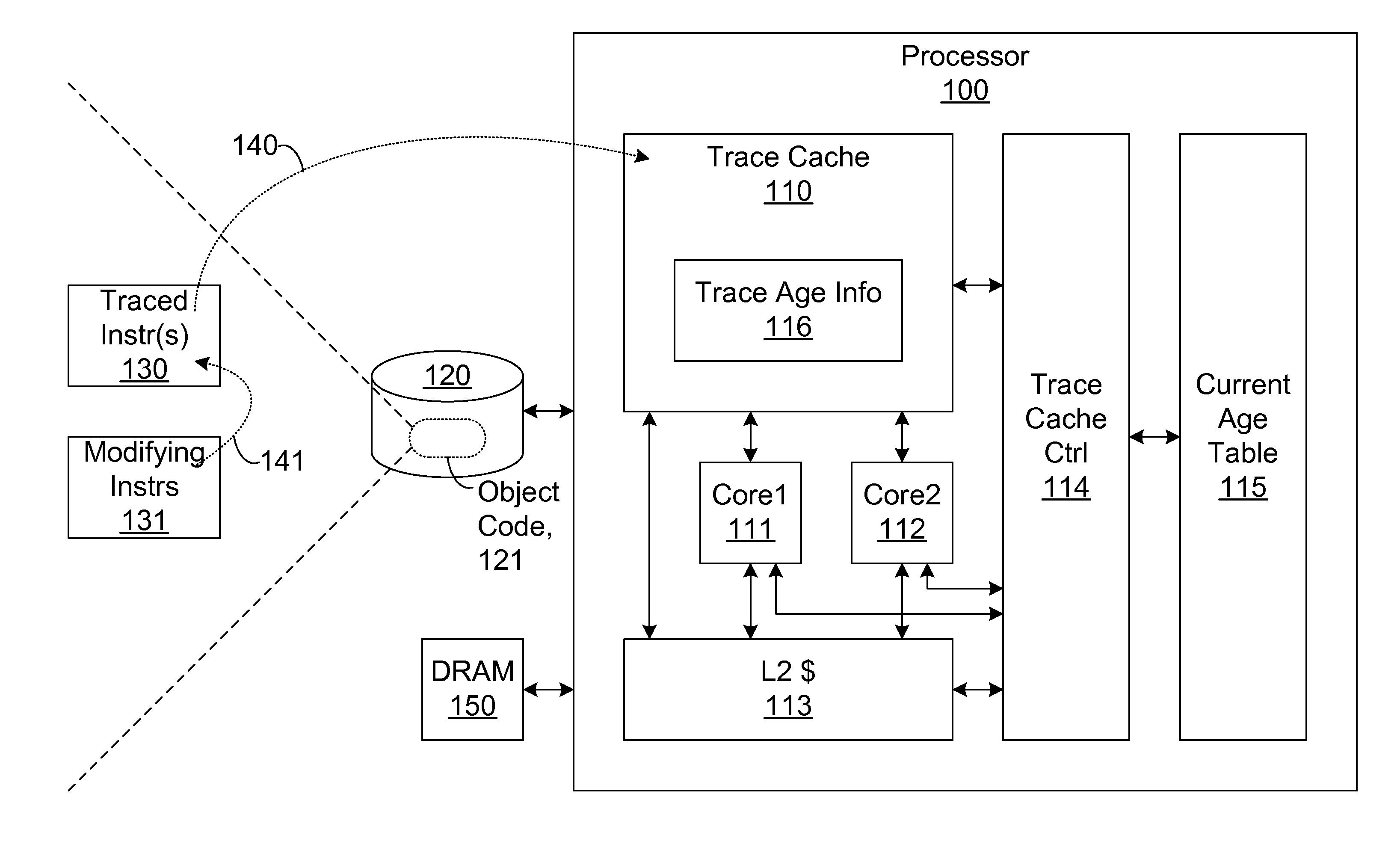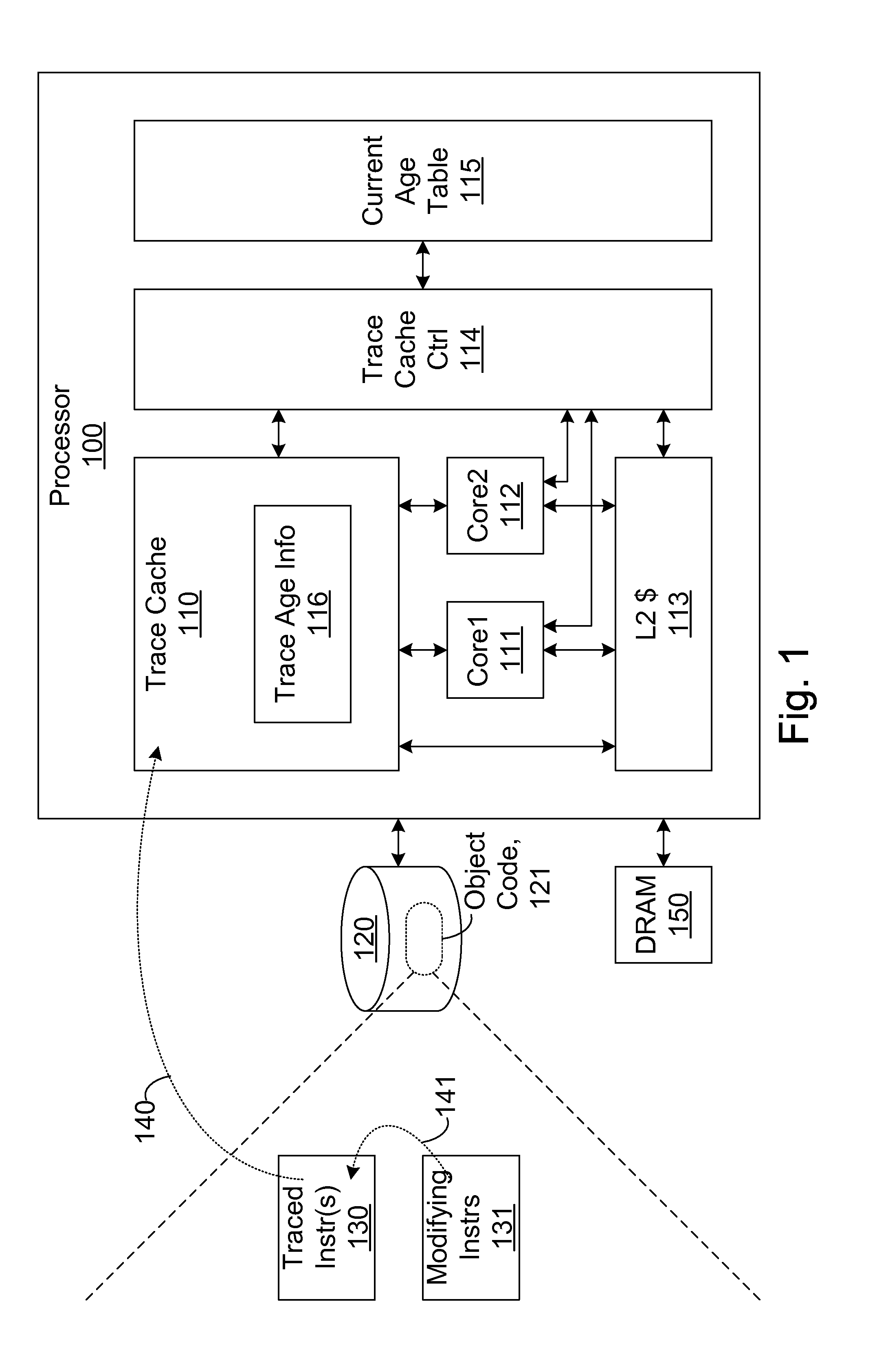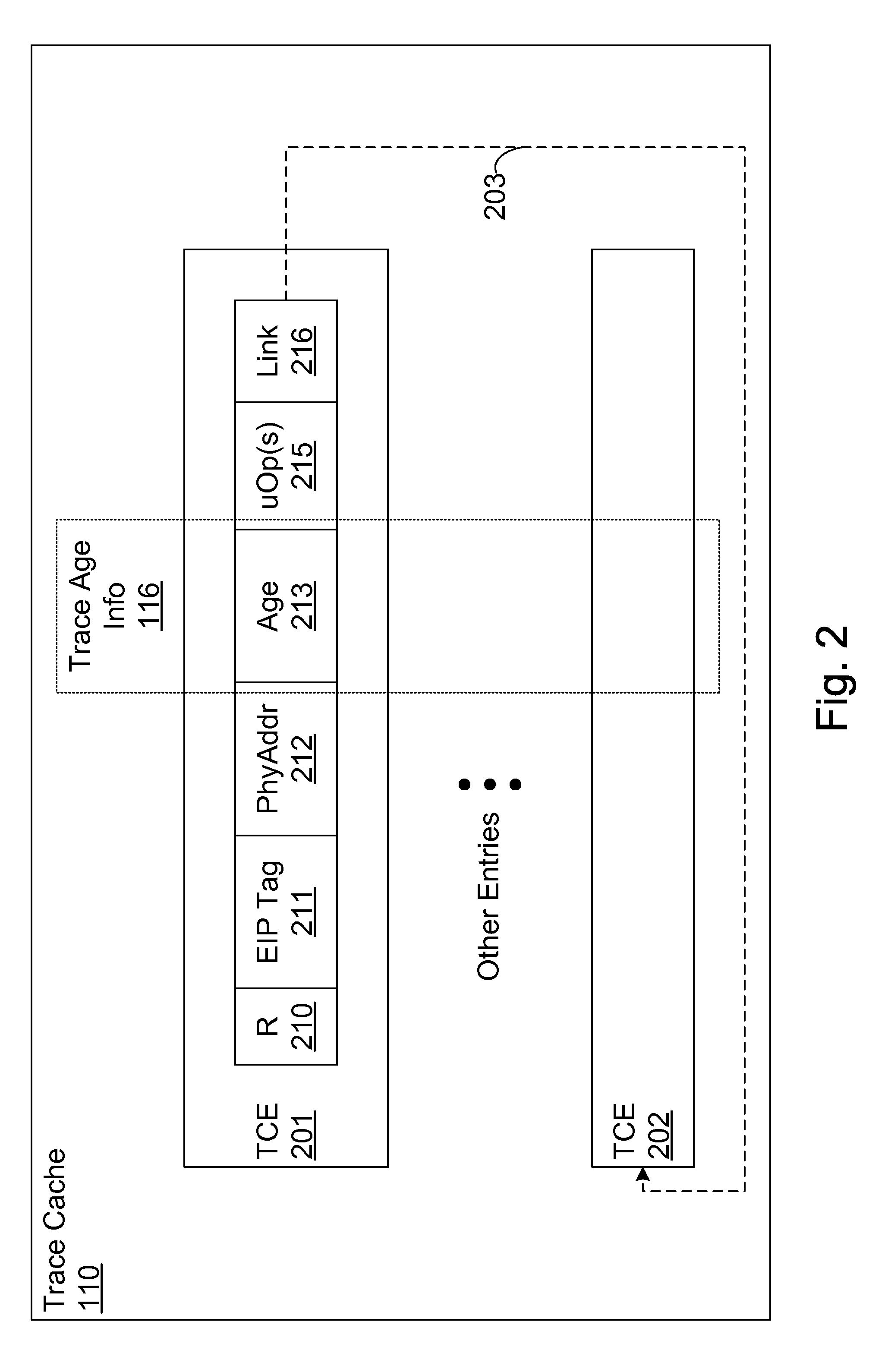Selective trace cache invalidation for self-modifying code via memory aging
a self-modifying code and cache technology, applied in the direction of instruments, climate sustainability, sustainable buildings, etc., can solve the problems of invalidating potentially stale saved micro-operations, incorrect behavior, and potentially at least partially incorrect micro-operations, etc., to achieve less efficient processing of instructions, efficient trace cache management, and more hardware
- Summary
- Abstract
- Description
- Claims
- Application Information
AI Technical Summary
Benefits of technology
Problems solved by technology
Method used
Image
Examples
Embodiment Construction
[0031]A detailed description of one or more embodiments of the invention is provided below along with accompanying figures illustrating selected details of the invention. The invention is described in connection with the embodiments. It is well established that it is neither necessary, practical, or possible to exhaustively describe every embodiment of the invention. Thus the embodiments herein are understood to be merely exemplary, the invention is expressly not limited to or by any or all of the embodiments herein, and the invention encompasses numerous alternatives, modifications and equivalents. To avoid monotony in the exposition, a variety of word labels (including but not limited to: first, last, certain, various, and some) may be applied to separate sets of embodiments; as used herein such labels are expressly not meant to convey quality, or any form of preference or prejudice, but merely to conveniently distinguish among the separate sets. Wherever multiple embodiments serv...
PUM
 Login to View More
Login to View More Abstract
Description
Claims
Application Information
 Login to View More
Login to View More - R&D
- Intellectual Property
- Life Sciences
- Materials
- Tech Scout
- Unparalleled Data Quality
- Higher Quality Content
- 60% Fewer Hallucinations
Browse by: Latest US Patents, China's latest patents, Technical Efficacy Thesaurus, Application Domain, Technology Topic, Popular Technical Reports.
© 2025 PatSnap. All rights reserved.Legal|Privacy policy|Modern Slavery Act Transparency Statement|Sitemap|About US| Contact US: help@patsnap.com



